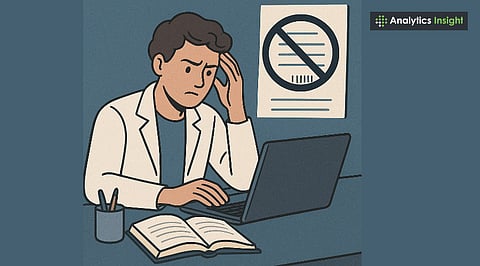

AI can generate references quickly, but many citations are fabricated, potentially spreading false information.
Verification tools, databases, and retrieval-augmented methods help reduce errors but cannot fully eliminate fake AI citations.
Researchers remain responsible for checking AI outputs to maintain credibility and academic integrity.
Artificial intelligence is transforming the way research is conducted. Recent innovations in this field can assist in finding articles, summarizing studies, and suggesting relevant references. AI sometimes makes up citations that do not exist. These fake references look real, including author names, journal titles, and dates. They are convincing enough that researchers might assume they are legitimate without checking.
This problem can cause serious issues. If fake citations are used in new research, incorrect information spreads. It can damage trust in academic work and make it harder to rely on AI-assisted tools. Students, journalists, and scientists who use AI may unknowingly include false information in reports, papers, or articles.
Several studies have shown how common fake AI citations are. In one test, researchers checked 178 references generated by an AI model. They found that 69 were wrong or could not be found online. Another experiment revealed AI giving information about ticks and citing studies that did not exist.
Fake references are often hard to spot. They mimic real journals and authors, making them appear authentic. Without careful verification, these mistakes can pass unnoticed, and they can influence other researchers who rely on AI-generated work.
Also Read: Best AI Writing Tools for Researchers
Developers and institutions are taking steps to reduce fake citations. Some AI models now link every reference to a real source. A method called retrieval-augmented generation combines AI writing with live searches in trusted databases. This helps ensure that citations are accurate.
Universities recommend that AI-generated references be manually verified. Tools like Semantic Scholar or NUsearch make it easier to check if a study exists. Some experts suggest AI Usage Cards, which explain exactly how AI was used in a research project. This allows readers to distinguish between human and AI contributions.
Even with safeguards, AI cannot completely stop making up citations. AI predicts text based on patterns in data and guesses what is likely to be correct. Sometimes it guesses wrong. Experts call these mistakes hallucinations. AI hallucinations happen because AI does not truly understand the content it produces.
The problem keeps changing as AI evolves. New models may fix certain errors but can introduce others. Researchers must constantly update verification methods and guidelines to stay ahead of AI’s mistakes.
AI can be a powerful tool for research, but it cannot replace human judgment. Every generated citation must be checked carefully. Using advanced tools, manual verification, and clear reporting helps reduce errors, but humans remain responsible for accuracy.
Researchers play the main role in maintaining the credibility of research. AI can save time and assist with writing or analysis, but it cannot guarantee that every reference is correct. Human oversight is essential to ensure research remains reliable.
Also Read: Top Case Studies on Generative AI for Researchers
Artificial intelligence is transforming research, but fake citations remain a serious challenge. Advanced AI tools, verification methods, and transparency can reduce mistakes, but they cannot eliminate them.
Researchers should stay vigilant, as AI can help create research faster, but accuracy depends on careful human checking.
1. Can AI-generated citations be fully trusted?
No, AI can create convincing but fake citations. Verification by researchers is essential.
2. How common are fake AI references?
Studies show a significant number of AI citations are wrong or non-existent, even in trusted-looking journals.
3. What tools help check AI-generated references?
Databases like Semantic Scholar and NUsearch, plus retrieval-augmented AI, help verify sources.
4. Why does AI make up citations?
AI predicts likely text patterns and sometimes guesses incorrectly, a phenomenon called hallucination.
5. Can human oversight prevent AI citation errors?
Yes, careful checking, transparency, and reporting are essential to maintain research credibility.
